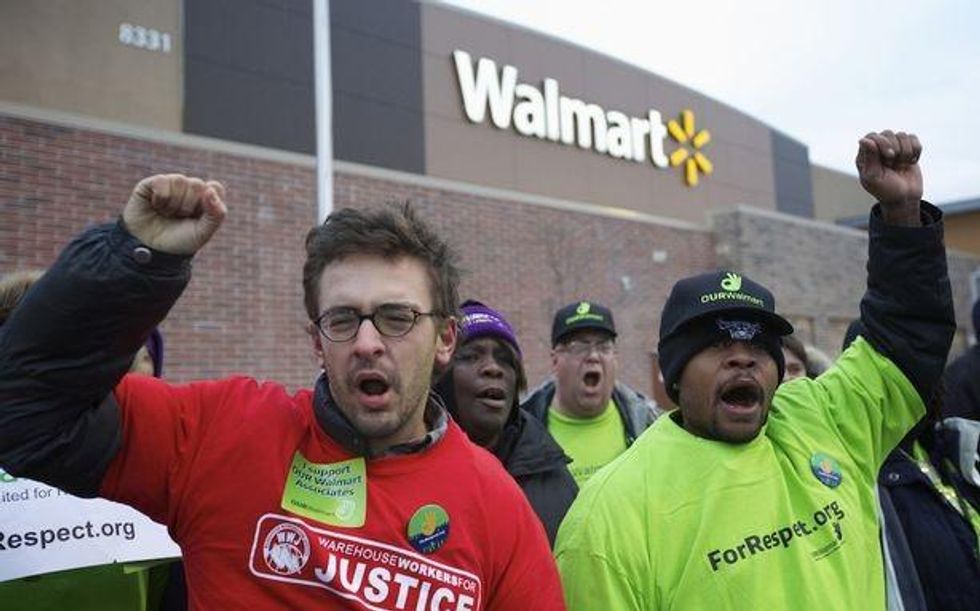A chilling
report released Wednesday unveils the well-funded and shadowy world of corporate espionage of
social justice organizations, through infiltration, intrusion, spying, wiretaps and more.
According to the study by the Center for Corporate Policy--a project of the Ralph Nader-affiliated Essential Action, today's 'Pinkerton Thugs' are staffed by former law enforcement, CIA, NSA, FBI and military employees, funded by some of the biggest-name corporations in the world, and backed by highly-secretive investigative firms that operate as spy agencies for the private sector.
Titled Spooky Business, the 53-page study pieces together nearly 20 years of information exposing this hidden wing of the private sector, which its author Gary Ruskin says "is just the tip of the iceberg." While targets run the gamut, from anti-war to workers' rights groups to environmental organizations, they appear to have one thing in common: they are perceived as a threat to the corporate bottom-line.
"The key finding of the report is that corporations are conducting espionage against nonprofit organizations," said Ruskin in an interview with Common Dreams. "This is entirely veiled in secrecy and is a threat to an active citizenry, democracy, and the right to privacy."
Numerous case studies show that multinational corporations, trade associations and big banks have attempted to or actively conducted acts of espionage. This includes (but is not limited to) the U.S. Chamber of Commerce, Walmart, Monsanto, Bank of America, Dow Chemical, Kraft, Coca-Cola, Chevron, Burger King, McDonald's, Shell, BP, BAE, Sasol, Brown & Williamson and E.ON.
A report summary states, "The most prevalent tactic appears to be infiltration by posing a volunteer or journalist, to obtain information from a nonprofit. But corporations have been linked to many other human, physical and electronic espionage tactics against nonprofits."
Numerous case studies provide snapshots of corporate espionage:
- Throughout the 1990s, Greenpeace organized a campaign against chlorine use in the manufacturing of paper. In response, Dow hired private firms that dug through Greenpeace's trash and recycling to access internal documents; posed as volunteers to spy on the office; conducted wiretap surveillance of the Greenpeace office; and stole confidential information from the organization.
- In 2010, journalist Mary Cuddehe revealed that the private investigative firm Kroll had attempted to recruit her to pose as a journalist while actually spying for Chevron in Ecuador. At the time, the massive oil company was fighting a multi-billion dollar fine for an oil spill around oil around Lago Agrio, Ecuador.
- In 2006, Walmart sent an employee to infiltrate and secretly wire a meeting of Up Against the Wal in Fayetteville, Arkansas.
- In 2011, French utility Electricite de France was charged $2 million for hacking into the computer network of the French Greenpeace chapter.
Ruskin says that the fragmentary evidence available suggests that over the past two decades, there has been an escalation of corporate espionage. "Yet the entire subject is still largely hidden by corporations and subcontractors," he said. "You can talk about the tip of the iceberg, but what's happening in the iceberg itself is a lot harder to say."
Yet, intelligence experts suggest the world of corporate espionage is vast. "The private sector has virtually all the same techniques as the government," said Jack Devine, a 32-year veteran of the CIA, and former acting director of its foreign operations, interviewed for the report.
"It's wrong that corporations can spy with near impunity," said Ruskin. "People don't lose right to privacy because they disagree with policies of corporations."
_____________________




